Business
Naira falls at black market as dollar index hit 6 months high
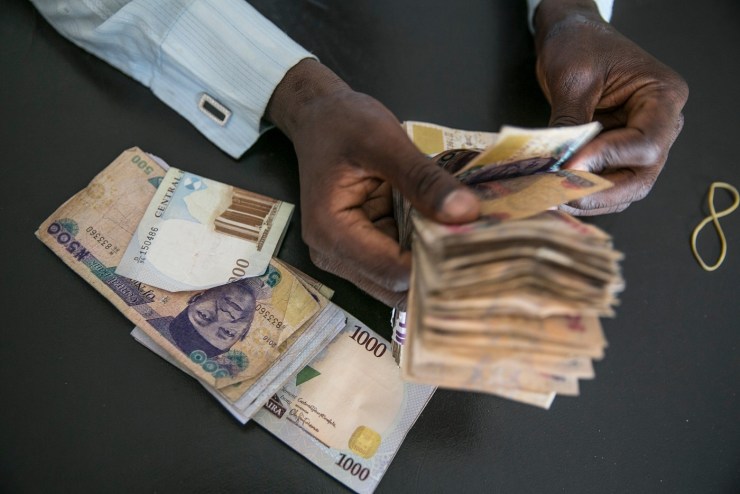
The dollar steadied near six-month highs as lingering signs of inflation in the United States stoked lingering concerns about the hawkish Federal Reserve.
The naira weakened to N930 to 1 dollar on Thursday in the unofficial foreign exchange (FX) market, known as the parallel market.
This decline was exacerbated by the inability of Nigerian banks to meet the growing demand for dollars, prompting buyers to turn to the parallel market.
The Central Bank of Nigeria’s (CBN) plan to clear foreign exchange debt in the next two weeks should restore confidence in the economy.
Folashodun Adebisi Shonubi, acting governor of CBN, said on Monday that the central bank has been discussing reducing the foreign exchange backlog for some time, “and we hope that we will get there after a while.” or two weeks,” he said.
The dollar remains at its highest since mid-March as the dollar index and dollar index futures have little movement in trading in London. Concerns about worsening global economic conditions also boosted safe-haven demand for the dollar.
At the time of writing, the US dollar index was trading at 104.8. The U.S. Dollar Index measures the value of the dollar in relation to a basket of other important currencies, including the Euro, British pound sterling, Swedish krona, and the Japanese yen.
The recent upsides on the index mean people wishing to fulfil foreign exchange payment commitments through dollar transfers to regions like Europe and Japan would have to fork over fewer dollars to do so.
Treasury rates with shorter maturities, which are more susceptible to fluctuations in the Fed’s rate, were several basis points higher on Wednesday. After increasing by over 6 basis points to 5.02%, the two-year yield was around 5.01%.
Data released overnight showed that activity in the US services sector increased more than expected in August, with the price index in the sector also continuing to rise.
These numbers have raised concerns about persistent inflation in the short term, prompting the Fed to maintain a hawkish stance.
A slew of Fed officials is expected to speak this week, offering more guidance on monetary policy ahead of a rate decision at the end of the month.
While the Fed is widely expected to keep rates unchanged, it should also reiterate its stance on sustainable rate hikes.
The strong U.S. labour market gives the U.S. Fed more ammunition to rein in inflation, continually adding pressure on frontier market currencies like the Nigerian naira as investors are increasingly flocking to safe-haven currencies.
For now, the dollar remains at the heart of the global financial system and US Treasuries remain the haven of choice.
In the SWIFT payment system, the share of dollar transactions exceeds 40%, giving it a dominant position.
The share of the euro is about 25%, while the share of the yuan is about 3%. But the dollar’s share of foreign exchange reserves was at a record 58% in early 2023, compared with 73% in 2001.
But old habits are unlikely to die. In a recent report, JPMorgan economists concluded that while “marginal de-dollarization” is happening, it won’t happen quickly.
The dollar, despite all its flaws, is simply too entrenched in global transactions to be quickly converted to another currency.
Business
Ghana’s inflation rises to 23.8% — highest in eight months
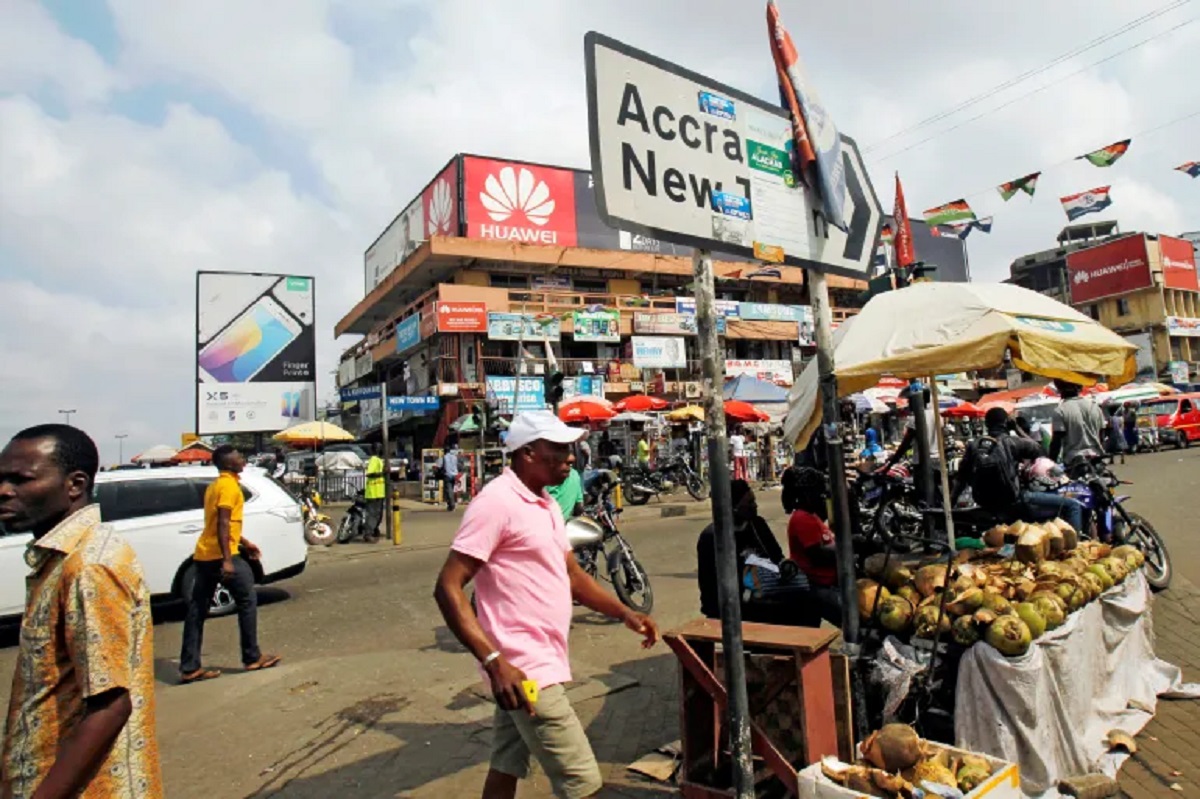
Ghana’s consumer inflation rate rose for the fourth consecutive month to 23.8 percent in December 2024.
Samuel Kobina Annim, government statistician at the Ghana Statistical Service (GSS), announced the figure to journalists in Accra on Wednesday.
Ghana’s inflation rate started rising in September last year, when it rose to 21.5 percent, then climbed further to 22.1 percent in October and 23 percent in November.
Annim said the inflation rate recorded at the end of last year was the highest in eight months.
“The rate of inflation… is the third highest in the last 13 months and highest in the last eight months,” Annim said.
Also, food inflation saw a significant jump, rising from 25.9 percent in November to 27.8 percent in December.
Annim attributed the increase to the contributions from specific food items, such as yams, showing drastic year-on-year price hikes of 63.3 percent.
He also highlighted the need for a dual approach to tackling inflation, addressing both monetary and real-sector issues.
“We do emphasise that there are two perspectives in addressing inflation. One is the monetary side… and the other is the real side, with what we’ve seen with food inflation, more particularly the food that we consume, that are locally produced,” he added.
Annim urged policymakers to focus on production, value chains, transportation, warehousing, and reducing post-harvest losses to stabilise food prices.
“Policymakers put in diverse interventions, rather than focusing on, let’s say, only exchange rate or focusing on just some selected items that do not cover the variety of food items that influence food prices,” he said.
Business
Governor Sanwo-olu signs N3.366trn 2025 budget
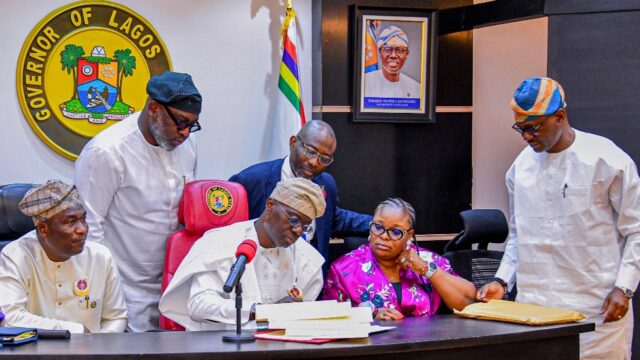
Lagos State Governor, Babajide Sanwo-Olu, on Thursday, signed the 2025 appropriation bill into law.
The Special Adviser on Media and Publicity to the Governor, Gboyega Akosile, made this known in a post on his X handle.
He said the budget size is N3.366 trillion meant for the continuation of the great works of the Sanwo-Olu administration.
Business
Italy extends work visa for skilled workers for 2025

Italy is taking steps to address its significant shortage of skilled workers by keeping its Work Visa for Highly Qualified Workers program open for 2025.
The country, which is known for its rich culture, food, and history, has faced increasing demand in sectors such as IT, healthcare, and green energy.
These industries are crucial to Italy’s economic growth, and the government is working to meet these demands by attracting foreign talent.
Italy is making considerable efforts to improve its labour market by introducing a series of policy changes to simplify the visa application process, DAAD Scholarship reports. The country’s Work Visa program is designed to bridge the gap between the available talent and the growing need for highly skilled workers.
Italy’s work visa aims to address skill shortages
The Work Visa for Highly Qualified Workers aims to address the skill shortages in key sectors, including information and communication technology (ICT), healthcare, and renewable energy. By opening its doors to foreign professionals, Italy hopes to fill critical positions that are difficult to staff with local workers.
This program is expected to boost the economy by bringing in skilled professionals who can contribute to sectors vital to Italy’s long-term economic stability.
The visa allows skilled workers to live and work in Italy while helping the country meet its industrial needs. In 2025, the visa is seen as a way to attract experts from around the world who can fill gaps in sectors where there is a high demand for specialized knowledge and experience.
Key changes to Italy’s work visa policies for 2025
Significant changes have been made to the Italian Work Visa policies to streamline the application process and ensure faster processing times. One of the major updates is the increase in quotas for non-EU workers.
- Last year, the Italian government raised the quota for work permits from 151,000 to 165,000. This adjustment reflects the increasing need for foreign workers across multiple sectors.
- Another notable change is the introduction of digital processes to simplify the visa application. By March 2024, the Italian government implemented digital contracts and the use of certified email (PEC), which have reduced the need for in-person visits to immigration offices.
- In July 2024, Italy also revised its EU Blue Card requirements, lowering the minimum work contract duration from 12 months to six months. Additionally, the salary threshold was adjusted to fall between 1 and 1.6 times the average gross salary in Italy.
The introduction of sector-specific permits for healthcare roles also occurred in October 2024. An additional 10,000 permits were introduced for family and social healthcare assistance positions to meet the growing demand in the healthcare sector.
Streamlined application process for 2025 work visa
The new application process for the Work Visa for Highly Qualified Workers in 2025 is designed to be faster and more accessible. The digital system allows employers to pre-fill applications for their workers, saving time and reducing paperwork.
The application process is simplified, with designated “click days” for submission, including February 5th, 7th, and 12th, 2025, depending on the applicant’s category, reports inform.
Once an application is submitted, both the employer and the applicant will be notified of the decision within a specified timeframe. Digital contracts and integration agreements also reduce the need for physical paperwork, further speeding up the process.
High-demand sectors for Italy’s work visa program
The Italian Work Visa for Highly Qualified Workers targets skilled professionals in several key sectors. These include:
- ICT: Software developers, data analysts, AI specialists, and cybersecurity experts are highly sought after.
- Healthcare: Nurses, physiotherapists, caregivers, and healthcare assistants are in demand.
- Green Energy: Engineers focused on renewable energy are needed to help Italy meet sustainability goals.
- Construction: Skilled laborers, engineers, and project managers are sought to address Italy’s infrastructure needs.
- Hospitality: Chefs, hotel managers, and tourism professionals are needed to support Italy’s vibrant tourism industry.
Where to find jobs with visa sponsorship in Italy
For those looking to apply for the Work Visa for Highly Qualified Workers, several job portals can help candidates find employment in Italy. Some popular websites where job seekers can find roles with visa sponsorship include:
The program offers a valuable opportunity for professionals in high-demand sectors to contribute to Italy’s economy and enjoy living in one of Europe’s most attractive countries.
-

 Business1 week ago
Business1 week agoAir France deboards French national in Abuja airport for unruly behaviour
-
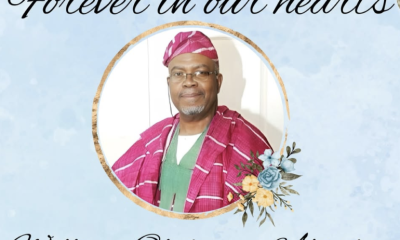
 Entertainment1 week ago
Entertainment1 week agoLala Akindoju loses dad
-

 News1 week ago
News1 week ago‘He’s a dead man walking’ — military threatens to eliminate Bello Turji
-

 News1 week ago
News1 week agoCelebrating Excellence in Nigeria: The Icons of Resilience, Leadership, and Innovation in 2024!
-

 News1 week ago
News1 week agoLagos state government to probe DJ Kulet’s husband over child molestation allegations
-
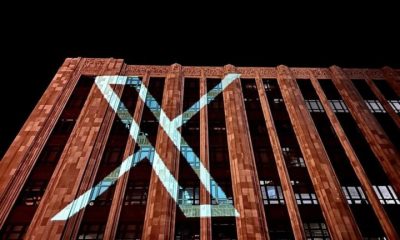
 Business1 week ago
Business1 week agoX to launch payment system this year
-

 News1 week ago
News1 week agoFire razes police station, three buildings in Lagos
-

 News1 week ago
News1 week agoUNIMEDTH resident doctors in Ondo begin indefinite strike over poor conditions of service


















